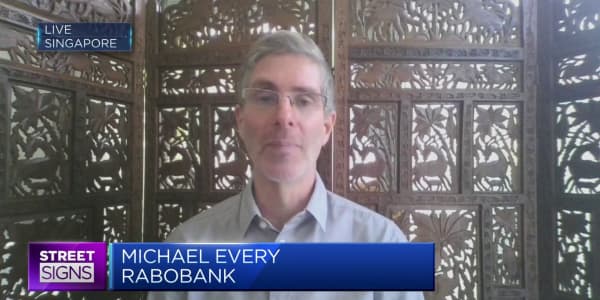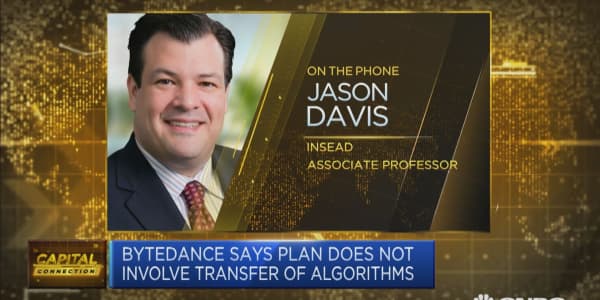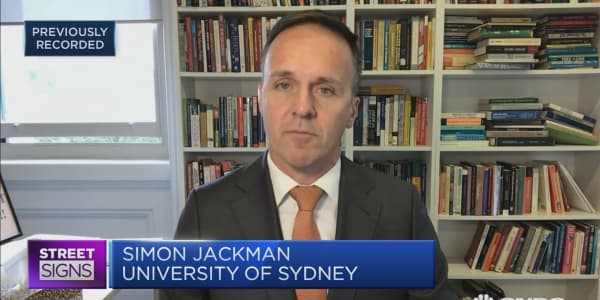Goldman Sachs has a message for markets: Curb your enthusiasm.
The U.S. economy is unlikely to see a recession in the immediate future as growth quickens, yet investors may be getting ahead of themselves anticipating the impact of President-elect Donald Trump's policy agenda, the bank's analysts wrote on Saturday.
Although the newly elected president has yet to assemble his economic team, stock markets have surged in expectations of fiscal stimulus and higher interest rates—putting any hints of economic gloom in the rear-view mirror for now. In response, Goldman said the odds of a recession over the next couple of years "look relatively low, and [analysts] see signs of firming growth in recent data."
Still, the bank suggested much of that impetus would not materialize until late next year, and would be an "added tailwind for 2017 growth" rather than an immediate boost to U.S. growth. In addition, Goldman warned that the current state of the U.S.'s fiscal health "may limit the scope for large deficit-financed tax cuts or spending increases." Also, Trump's protectionist trade policies and an economy "close to full employment" may counteract the benefits derived from a fiscal boost, Goldman added.
With Republicans in firm control of both houses of Congress, Goldman estimates a fiscal boost—which may include a mix of tax cuts and infrastructure spending—will check in around $150 billion per year, or less than 10 percent of gross domestic product.
"Of this total, we expect $100 billion in tax cuts ($70 billion for individuals and $30 billion for firms), and $50 billion of net spending increase." Such an expansion of public finances would boost real GDP by around 0.6 percent over two years, analysts wrote.
However, Goldman had a caveat for investors rushing into a "Trump trade" that has sent stocks on a tear to record highs awhile wreaking havoc on Treasury debt.
"While we see substantial support in Congress for proposals to cut taxes and reform the tax code, our current impression is that market expectations of quick fiscal expansion may be running ahead of political and legislative realities," Goldman said.
Fiscal imbalances and high levels of federal debt held by the public—more than 76 percent in fiscal year 2017—the impact of a fiscal boost may be limited. When Presidents Ronald Reagan and George W. Bush passed similarly large tax cuts in 1981 and 2001, debt levels were at far lower levels, Goldman pointed out.
"Given this fiscal backdrop, many members of Congress may be hesitant to support large deficit-financed tax cuts," the bank added.





